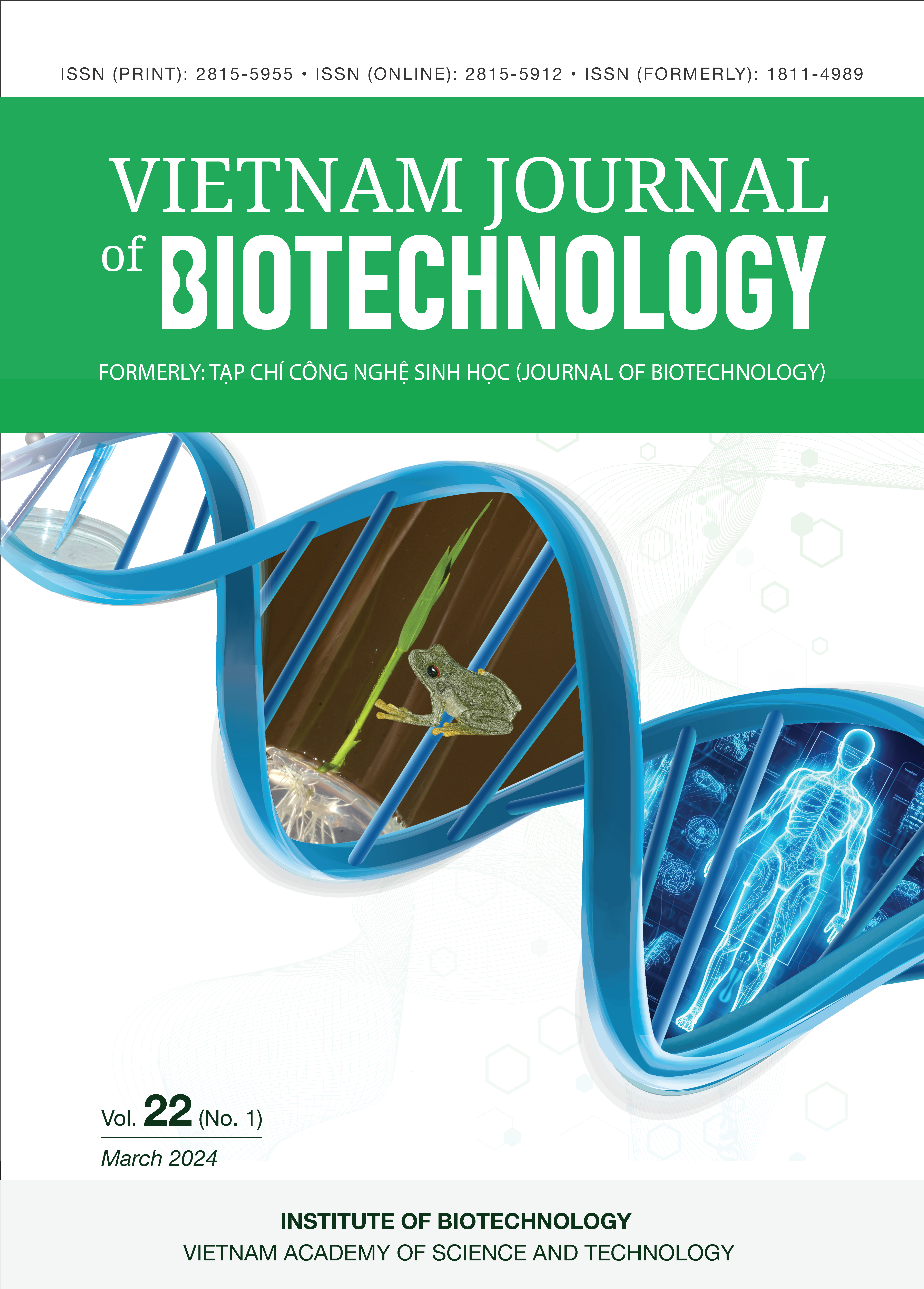Differential abundance in upper respiratory microbiome between smoking and non-smoking COVID-19 patients
Author affiliations
DOI:
https://doi.org/10.15625/vjbt-19787Keywords:
16S metagenomics, COVID-19, smoking, upper respiratory tractAbstract
The COVID-19 pandemic caused by SARS-CoV-2 has resulted in significant respiratory morbidity and mortality. Smoking is a well-established risk factor for adverse respiratory outcomes, and it may exacerbate COVID-19 outcomes by altering the upper respiratory tract (URT) microbiome. However, the association between smoking, the URT microbiome, and COVID-19 severity remains controversial. In this study, we investigated the microbial community in the UTR of smoking and non-smoking COVID-19 patients using 16S ribosomal RNA metagenomic datasets. By characterizing the microbial profiles of the URT of 88 COVID-19 patients with and without a smoking history, we examined the differences in the URT microbiome between smokers and non-smokers and identified bacteria that could serve as smoking signatures. Our study found that Prevotella was the most abundant genus in the URT microbiome of both smoking and non-smoking COVID-19 patients, followed by five other dominant genera. Notably, Fusobacterium was significantly higher in smokers than non-smokers, suggesting that smoking may affect the URT microbial composition. However, the alpha and beta diversity indices showed no significant differences within and across communities, regardless of smoking status or levels of severity. Differential abundance analysis suggested that the impact of smoking on the URT microbiome may lead to an increase in the abundance of Streptobacillus in smoking patients. Overall, this study highlights the potential impact of smoking on the URT microbiome and its relevance to COVID-19 outcomes. Thus, it provides insights into the underlying mechanisms that may lead to worsened COVID-19 outcomes due to smoking-induced alterations in the URT microbiome.







